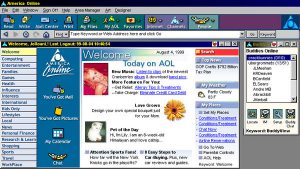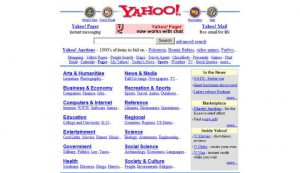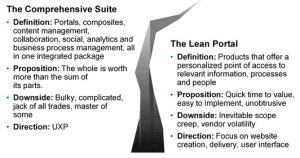Go Lean Commentary
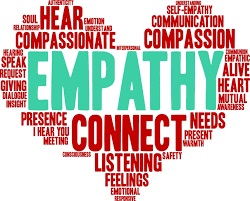 There are positives and negatives in all life experiences; good things to continue and bad things to cease-and-desist.
There are positives and negatives in all life experiences; good things to continue and bad things to cease-and-desist.
Yes, there are the negative traits that members of society should avoid while there are positive traits that these ones should be encouraged to pursue.
Which are which?
Every adult has the moral compass to ascertain good and bad; yet still, many times we need to be reminded to double-down on those good traits for the Greater Good. Think Charitable campaigns! Think appealing to people’s Better Nature. Think empathy …
Doubling-down, Greater Good, Charitable Campaigns, Better Nature …
… there is a trend here; there is currency and urgency as well. These are the dynamics of an active campaign ongoing in the Caribbean member-state of the Bahamas right now, branded:
BahamasKind…
The #BahamasKind Campaign is a community program launched to encourage community solidarity and social cohesion. The program’s aim is to promote positive relationships between all persons in our communities, to diminish xenophobia and stigma. …This is a program launched during the COVID-19 pandemic … to promote positive relationships between all persons in our communities, fostering compassion, empathy, [humanity, diversity] and unity. – Source: Retrieved July 30, 2020 from: https://www.facebook.com/KindBahama
See a related news article in the Appendix below.
This is a genuine effort to appeal to the Better Nature of Bahamians to double-down on traits that promote the Greater Good.
Stakeholders for the movement behind the 2013 book Go Lean … Caribbean got to witness this campaign … and participate in it. This was “par for the course” as we have done this conscientizing before using electronic media. Our previous effort – documented in a previous Go Lean blog-commentary from July 13, 2017 – was on a Radio Talk Show; this time the medium is a TV Show for Facebook VIDEO’s.
“Conscientizing”?!
… it is not an everyday word; but it does have an ever-effective definition:
Conscientize (verb) – to make somebody/yourself aware of important social or political issues. – Oxford Dictionary.
The conscientizing theme this time, with the Go Lean movement’s participation, was on Empathy.
This is one of 5 shows, 4-of-5; they were all moderated by Bahamas Kind host “Howard Grant Jr.”. This is the full series; (you are encouraged to consume all the VIDEO’s):
- Topic: “Humanity” with guests Dr. Christopher Curry and Dr. Ian Strachan.
- Topic: “Compassion” with Pastor Edward St. Fleur and Pastor Mario Moxey
- Topic: “Diversity” with Dr. Nicolette Bethel and Activist Chris Davis
- Topic “Empathy” with Activist Alicia Wallace and Go Lean stakeholder “Robb Sawyer”
VIDEO – #BahamasKind | Episode 4. Empathy – https://www.facebook.com/watch/?v=2614088355497195 - Topic: “Unity” with Activists Erin Brown and Dr. Christopher Curry
These truly are fine qualities to foster: Humanity, Compassion, Diversity, Empathy and Unity. Unfortunately we do not have enough manifestation of these in our communities today. We need a change; we must change.
But is this “pie-in-the-sky”? Is it truly reasonable to expect such changes, that the people and institutions in one Caribbean community after another will develop and deploy more and more of these fine qualities in society?
Yes, we can …
The Go Lean book identified that our Caribbean attitudes needed to change, that we have to double-down on many qualities – including these ones identified here. The book provides 370 pages of instructions on how to foster these community attributes – how to forge change; consider this direct quotation (Page 20):
Forging Change – A Roadmap
…
Change is not easy …Just ask anyone attempting to quit smoking. Not only are there physiological challenges, but psychological ones as well, to the extent that it can be stated with no uncertainty that “change begins in the head”. In psycho-therapy the approach to forge change for an individual is defined as “starting in the head (thoughts, visions), penetrating the heart (feelings, motivations) and then finally manifesting in the hands (actions). This same body analogy is what is purported in this book for how the Caribbean is to embrace change – following this systematic flow:
- Head Plans, models and constitutions
- Heart Community Ethos
- Hands Actions, Reboots, and Turn-arounds
Leaning in and going lean for Caribbean regional integration hereto requires engaging all three body parts, figuratively speaking, none more important than the heart. The people of the Caribbean must change their feelings about elements of their society – elements that are in place and elements missing. This is referred to as “Community Ethos”, defined as:
noun – (www.Dictionary.com)
- the fundamental character or spirit of a culture; the underlying sentiment that informs the beliefs, customs, or practices of a group or society; dominant assumptions of a people or period: In the Greek ethos the individual was highly valued.
- the character or disposition of a community, group, person, etc.
The foregoing VIDEO series presented advocates and activists longing to reform and transform their Bahamian homeland. Where as, these people “labor in the fields to harvest” change in the Bahamas, our Go Lean…Caribbean movement seeks to reform and transform the whole region – “raise the tide and all the boats in the harbor are elevated”.
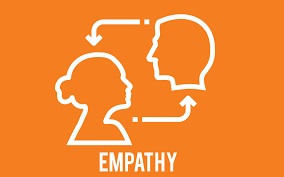 The last time we conscientized – on the radio – the location was in Florida, as we were appealing to the Caribbean Diaspora in the audience market. Now, this time, we are in the Caribbean, appealing to Caribbean people directly. Our quest is to direct the audience to the Go Lean book as a published guidebook – 370-pages of turn-by-turn instructions – on “how” to adopt the new community ethos, plus the strategies, tactics, implementations and advocacies to execute so as to reboot, reform and transform the societal engines of Caribbean society.
The last time we conscientized – on the radio – the location was in Florida, as we were appealing to the Caribbean Diaspora in the audience market. Now, this time, we are in the Caribbean, appealing to Caribbean people directly. Our quest is to direct the audience to the Go Lean book as a published guidebook – 370-pages of turn-by-turn instructions – on “how” to adopt the new community ethos, plus the strategies, tactics, implementations and advocacies to execute so as to reboot, reform and transform the societal engines of Caribbean society.
Empathy was our focus in the foregoing FB VIDEO …
This is not our first time conscientizing on the subject or implication of Empathy – the ability to understand and share the feelings of another – consider these previous Go Lean blog-commentaries that elaborated on this subject and some lessons learned:
| https://goleancaribbean.com/blog/?p=20105 | Lack of Empathy can cause the Wrong Ethos to rise |
| https://goleancaribbean.com/blog/?p=19215 | Some people are more disciplined & empathic to thrive – Is that so bad? |
| https://goleancaribbean.com/blog/?p=17135 | Lack of Empathy for Puerto Rico: Speaks to “true status” with America |
| https://goleancaribbean.com/blog/?p=13664 | Sexual Harassment Accusers – They have always needed “Empathy” |
| https://goleancaribbean.com/blog/?p=10532 | Its Bad to abuse someone for resemblance – stereotype – to enemies |
| https://goleancaribbean.com/blog/?p=10201 | Obama disbanded the Bad Policy of Wet Foot / Dry Foot – No Empathy |
| https://goleancaribbean.com/blog/?p=5964 | Movie Review: ‘Tomorrowland’ – ‘Feed the right wolf’ for Empathy |
| https://goleancaribbean.com/blog/?p=5238 | Prisoners for Profit – Justice tied to Empathy – #ManifestJustice |
The foregoing VIDEO stressed the need for empathy, justice and progress. Without these important ingredients in the societal recipe, bad things happen – people flee and the community suffers.
Let do better NOW! It takes a little bit of effort to show kindness to others, the way we would like for them to show kindness towards us.
We must not “sit still” in our participation in society. We must step up, step in and step forward. We must commit to the heavy-lifting to reform and transform our communities. This is how we will make our homeland a better place to live, work and play. 🙂
About the Book
The book Go Lean…Caribbean serves as a roadmap for the introduction and implementation of the technocratic Caribbean Union Trade Federation (CU), for the elevation of Caribbean society – for all member-states. This CU/Go Lean roadmap has these 3 prime directives:
- Optimization of the economic engines in order to grow the regional economy to $800 Billion & create 2.2 million new jobs.
- Establishment of a security apparatus to ensure public safety and protect the resultant economic engines.
- Improve Caribbean governance to support these engines, including a separation-of-powers between the member-states and CU federal agencies.
The Go Lean book provides 370-pages of turn-by-turn instructions on “how” to adopt new community ethos, plus the strategies, tactics, implementations and advocacies to execute so as to reboot, reform and transform the societal engines of Caribbean society.
Download the free e-Book of Go Lean … Caribbean – now!
Who We Are
The movement behind the Go Lean book – a non-partisan, apolitical, religiously-neutral Community Development Foundation chartered for the purpose of empowering and re-booting economic engines – stresses that reforming and transforming the Caribbean societal engines must be a regional pursuit. This was an early motivation for the roadmap, as pronounced in the opening Declaration of Interdependence (Pages 12 – 13):
xi. Whereas all men are entitled to the benefits of good governance in a free society, “new guards” must be enacted to dissuade the emergence of incompetence, corruption, nepotism and cronyism at the peril of the people’s best interest. The Federation must guarantee the executions of a social contract between government and the governed.
xii. Whereas the legacy in recent times in individual states may be that of ineffectual governance with no redress to higher authority, the accedence of this Federation will ensure accountability and escalation of the human and civil rights of the people for good governance, justice assurances, due process and the rule of law. As such, any threats of a “failed state” status for any member state must enact emergency measures on behalf of the Federation to protect the human, civil and property rights of the citizens, residents, allies, trading partners, and visitors of the affected member state and the Federation as a whole.
xiv. Whereas a free market economy can be induced and spurred for continuous progress, the Federation must install the controls to better manage aspects of the economy: jobs, inflation, savings rate, investments and other economic principles. Thereby attracting direct foreign investment because of the stability and vibrancy of our economy.
Sign the petition to lean-in for this roadmap for the Caribbean Union Trade Federation.
—————–
Appendix – #BahamasKind initiative targets xenophobia
By: Sloan Smith, ZNS Eyewitness News
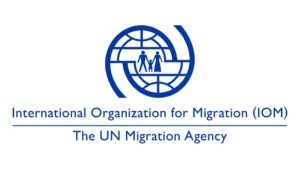 NASSAU, BAHAMAS — The International Organization for Migration Bahamas is expected to launch a campaign in collaboration with IsraAid and Church World Services to help sensitize Bahamians and reduce stigmas of Haitian migrants.
NASSAU, BAHAMAS — The International Organization for Migration Bahamas is expected to launch a campaign in collaboration with IsraAid and Church World Services to help sensitize Bahamians and reduce stigmas of Haitian migrants.
The #BahamasKind will seek to foster increased community solidarity, encourage compassion and empathy, and reduce xenophobia and stigmas of Haitian migrants in The Bahamas, according to the IOM.
In its latest situational report, the organization said it intends to host eight activities to improve intra-communal trust, sensitize communities, and enhance cooperation.
The activities will include weekly journalistic talks with influencers on prime media channels, online activation, and physical activation of the Bahamian population.
Additionally, wall paintings on kindness subjects will be posted in schools and public squares, further solidifying the message of kindness in The Bahamas.
IOM Bahamas was established shortly after Hurricane Dorian barrelled its way through Grand Bahama and Abaco last year.
Dorian pounded the two islands between September 1-3, claiming the lives of a confirmed 74 people — and displacing thousands, many of whom resided in Haitian shantytown communities in Abaco.
The Category 5 storm destroyed the two largest of the six shantytowns on the island – The Mudd and the Peas.
The organization has been providing aid to the government in a number of areas and has also been assisting the migrant Haitian community.
IOM Bahamas is currently working with the Ministry of Health surveillance unit to develop a comprehensive risk assessment to determine risks of Hurricanes and transmittable diseases like COVID-19 in the informal settlements in New Providence, Abaco, Exuma, Long Island, and Eleuthera.
The Ministry of Health trusts that this project can help to mitigate the impact risks of a COVID19 outbreak or natural disaster in the informal, according to the organization.
In May, the international body released a comprehensive assessment of the preparedness of emergency shelters on Grand Bahama and Abaco Islands for the 2020 Hurricane Season.
The report warns that the islands ravaged by Dorian still do not have adequate shelter capacity for the upcoming season and put forth several recommendations for forward movement.
IOM Bahamas has also partnered with the Community Organized Relief Effort (CORE) to help to clear more than 23.000m3 of debris from private homes, streets, yards, and public spaces.
The organization will also engage in supporting up to 40 families with the repair of their homes.
Additionally, the organization began repairs to the Bahamas Elite Sports Academy who accepted 16 displaced migrant children.
The organization has launched similar initiatives in countries worldwide.
Source: Posted June 4, 2020; retrieved July 30, 2020 from: https://ewnews.com/bahamaskind-initiative-to-help-reduce-xenophobia-in-the-bahamas

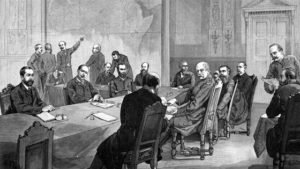
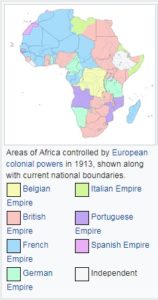 There was a constant, efficient and emphatic “grab” for the assets and capital of Africa – human capital included. Garvey’s assessment was 100 years after the formal Slave Trade ended in 1807. Yes, the European nations had divided up all of the African continent for their own empire-building and economic manifestations; see the encyclopedic reference here:
There was a constant, efficient and emphatic “grab” for the assets and capital of Africa – human capital included. Garvey’s assessment was 100 years after the formal Slave Trade ended in 1807. Yes, the European nations had divided up all of the African continent for their own empire-building and economic manifestations; see the encyclopedic reference here: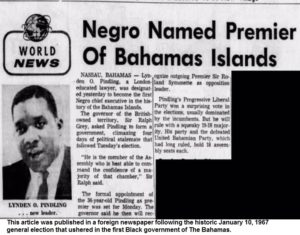


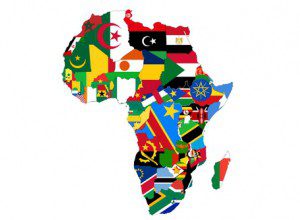 A positive image is not automatic …
A positive image is not automatic …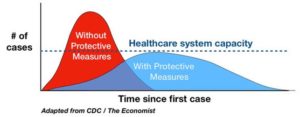
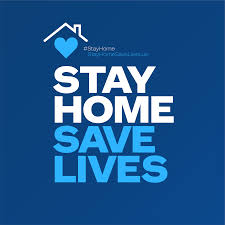
 Netflix and chill …
Netflix and chill … An over-the-top (OTT) media service is a
An over-the-top (OTT) media service is a  It’s been 3 years; we thought we’d check back in.
It’s been 3 years; we thought we’d check back in.

 Apple’s devices also proliferate in the Caribbean; (though no where close to 1 billion units). We therefore have the opportunity to prepare our media offerings for direct-to-consumers via their devices. This is already the Go Lean strategy for the new social media site: www.myCaribbean.gov. As related in a
Apple’s devices also proliferate in the Caribbean; (though no where close to 1 billion units). We therefore have the opportunity to prepare our media offerings for direct-to-consumers via their devices. This is already the Go Lean strategy for the new social media site: www.myCaribbean.gov. As related in a  This entire series asserts that “no man is an island” and that “no island is an island”, therefore the full Caribbean region – all 30 member-states and 42 million people – need to combine, collaborate and confederate to form a Single Market for media and other economic activities. Our failure to do so in the past have imperiled our economic, security and governmental engines.
This entire series asserts that “no man is an island” and that “no island is an island”, therefore the full Caribbean region – all 30 member-states and 42 million people – need to combine, collaborate and confederate to form a Single Market for media and other economic activities. Our failure to do so in the past have imperiled our economic, security and governmental engines.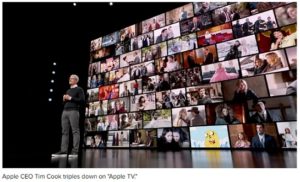 has three new ways to get you watching more TV shows and movies. Unfortunately they all have very similar names, and all start with “Apple TV.”
has three new ways to get you watching more TV shows and movies. Unfortunately they all have very similar names, and all start with “Apple TV.” When it comes to media industry (movies, film, fashion modeling), there are some other relevant idioms; consider this list:
When it comes to media industry (movies, film, fashion modeling), there are some other relevant idioms; consider this list: ASPIRING international model Gabriella Bernard feels she deserves an apology from former Miss Universe and executive producer of the Caribbean Next Top Model competition, Wendy Fitzwilliam, after she was given an ultimatum on the television show- relax her natural hair or go home.
ASPIRING international model Gabriella Bernard feels she deserves an apology from former Miss Universe and executive producer of the Caribbean Next Top Model competition, Wendy Fitzwilliam, after she was given an ultimatum on the television show- relax her natural hair or go home.

 Freedom of Speech is not so absolute!
Freedom of Speech is not so absolute!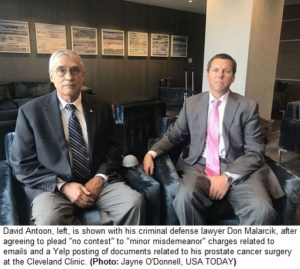 CLEVELAND – Retired Air Force Colonel David Antoon
CLEVELAND – Retired Air Force Colonel David Antoon 



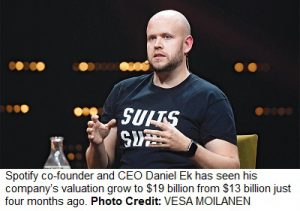
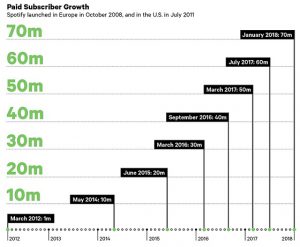 “Just think about their depth of influence in the world,” says Capitol Music Group chairman-CEO Steve Barnett of Spotify. “[A recent Nielsen] report noted that Americans are spending more than 32 hours a week listening to music — up from [23.5] hours in two years. That tells you, for all the mistakes the industry made over a long period of time, things have been corrected.”
“Just think about their depth of influence in the world,” says Capitol Music Group chairman-CEO Steve Barnett of Spotify. “[A recent Nielsen] report noted that Americans are spending more than 32 hours a week listening to music — up from [23.5] hours in two years. That tells you, for all the mistakes the industry made over a long period of time, things have been corrected.”



 In the course of this series of blog-commentaries on the Caribbean Future, we have addressed the economic issues, particularly related to education; we have addressed homeland security and we have addressed media (radio). This final submission is Part 5 of 5 in this series and it contemplates a preview of the future of government engagement. The full series is catalogued as follows:
In the course of this series of blog-commentaries on the Caribbean Future, we have addressed the economic issues, particularly related to education; we have addressed homeland security and we have addressed media (radio). This final submission is Part 5 of 5 in this series and it contemplates a preview of the future of government engagement. The full series is catalogued as follows:
